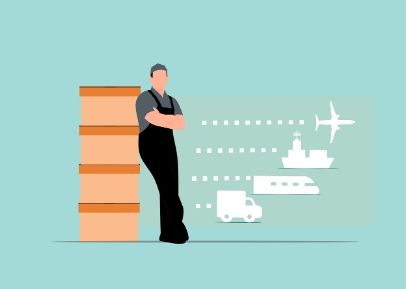What are Rules of Origin and How Do They Affect International Trade?
Rules of Origin (RoO) are criteria used by countries to determine the national source of a product. Their primary purpose is to identify which goods qualify for import or export, and they are crucial for implementing trade policies such as tariffs, quotas, and free trade agreements. This article will explore the nature, importance, and implications of Rules of Origin in the context of global commerce.

What are Rules of Origin?
Rules of Origin are the laws, regulations, and administrative determinations that dictate the "economic nationality" of a product. These rules are critical in international trade as they affect how goods are treated at borders, particularly in terms of tariffs and restrictions.
How Do Rules of Origin Work?
Rules of Origin can be either non-preferential or preferential. They determine how products are classified for duties and compliance with trade agreements:
• Non-preferential Rules of Origin: Used to determine the origin of goods imported from countries with which there is no trade agreement. These rules are generally applied for protective measures such as anti-dumping duties and safeguard measures.
• Preferential Rules of Origin: Applied to goods coming from countries that are part of free trade agreements (FTAs) or special trade zones. These rules define whether the products qualify for tariff reductions or exemptions under the agreements.
Types of Rules of Origin
1. Wholly Obtained: For goods entirely produced or sourced from one country, like minerals extracted or crops harvested there.
2. Substantial Transformation: Used to determine whether enough change has been made to a product in a second country to consider it originating from there. This can involve changes in tariff classification, specific processing operations, or a minimum percentage of local content.
Importance of Rules of Origin
• Enforcement of Trade Agreements: They ensure that only eligible products benefit from preferential tariffs under trade agreements, preventing transshipment where non-eligible goods are shipped through preferential countries to circumvent higher tariffs.
• Protection of Domestic Industries: Help protect local markets from foreign competition by controlling access to preferential tariff rates.
• Market Access: Influence the cost and availability of goods in domestic markets, affecting consumer prices and industry competitiveness.
Impact of Rules of Origin on International Trade
• Trade Complexity: Compliance with different sets of rules for different countries can increase the complexity and cost of international trade.
• Supply Chain Decisions: Businesses might alter their supply chains to meet specific rules of origin requirements, impacting global supply chain strategies.
• Customs and Documentation: Extensive documentation and verifications can lead to delays and increased costs at customs.
Challenges Associated with Rules of Origin
• Administrative Burden: Meeting the documentation requirements to prove origin can be cumbersome and resource-intensive.
• Economic Distortions: Strict rules may encourage firms to alter production inefficiently just to qualify for tariff preferences.
• Trade Diversion: Complex rules may lead to trade being diverted from the most competitive sources to those that meet specific origin criteria.
Navigating Rules of Origin
• Understand Compliance Requirements: Businesses must thoroughly understand the rules that apply to their products in all the markets they operate in.
• Leverage Technology: Use trade management software to streamline documentation and ensure compliance with various countries' rules.
• Seek Expert Advice: Consulting with customs brokers or trade compliance experts can help navigate the complexities of Rules of Origin.
Conclusion
Rules of Origin are a fundamental aspect of international trade that significantly influences how goods are traded globally. They determine the economic nationality of products and dictate the duties and restrictions that apply to them. Understanding and complying with these rules is essential for businesses to effectively navigate the global trade environment, benefit from trade agreements, and optimize their supply chain operations.
Related articles

 WeChat of CBiBank
WeChat of CBiBank